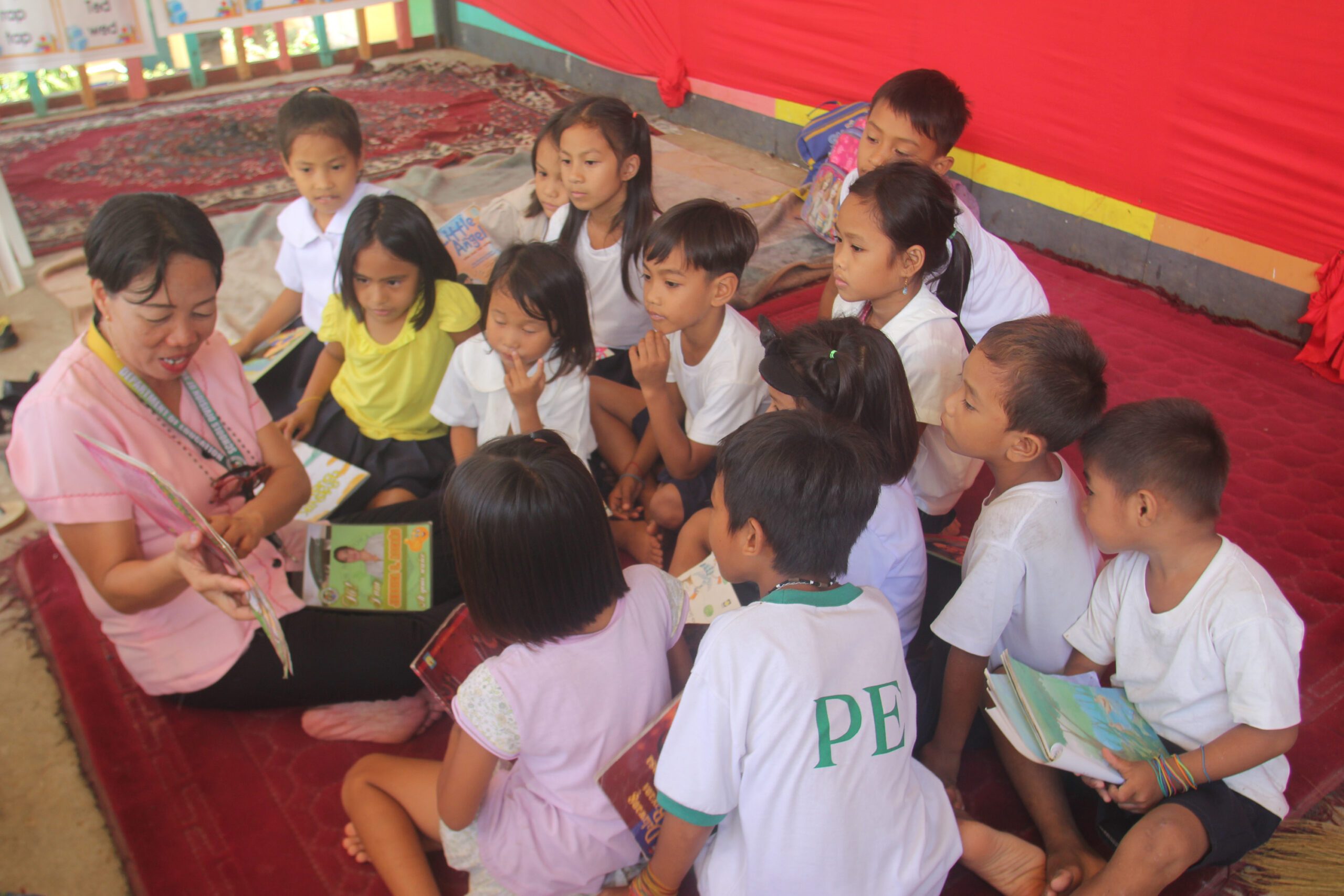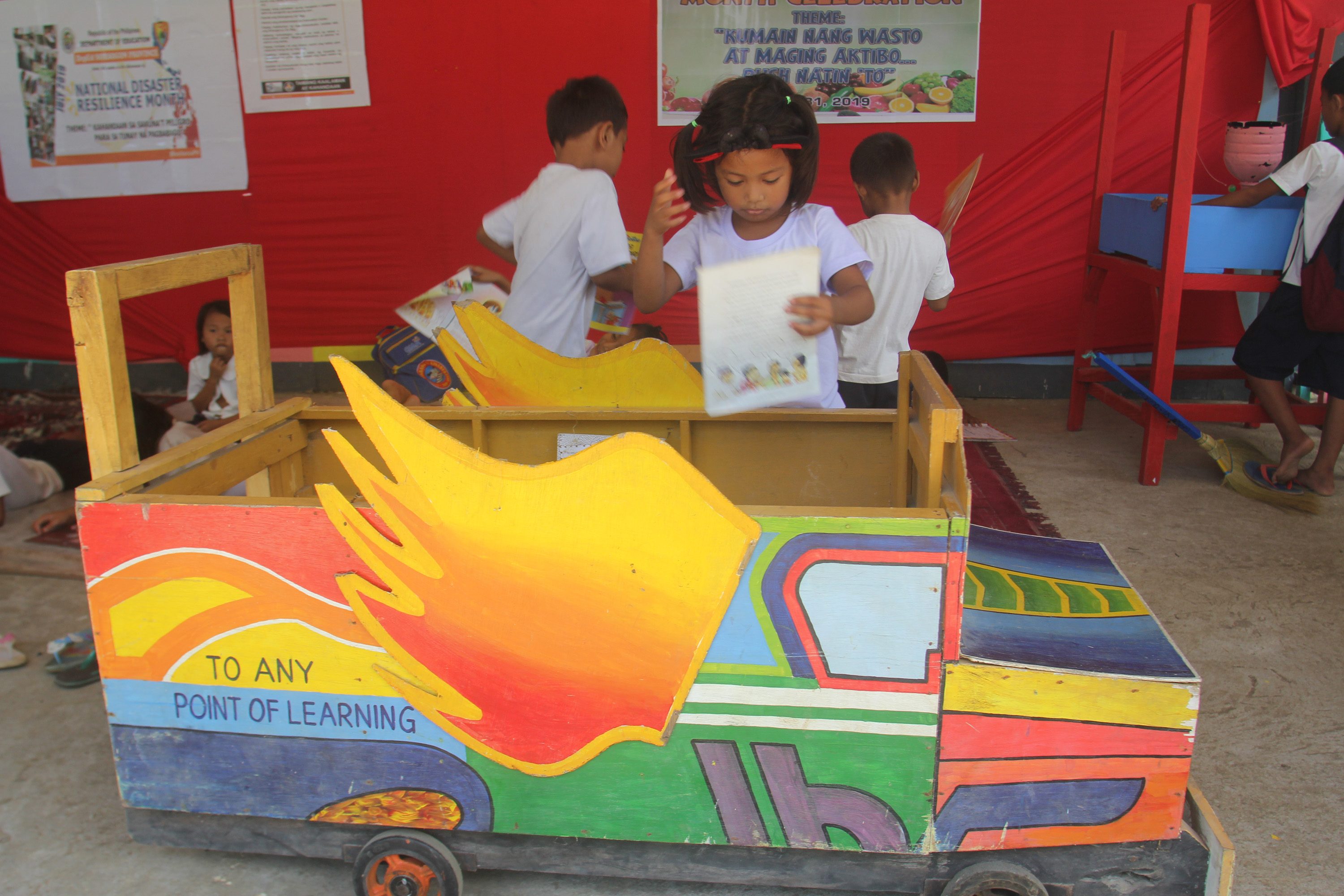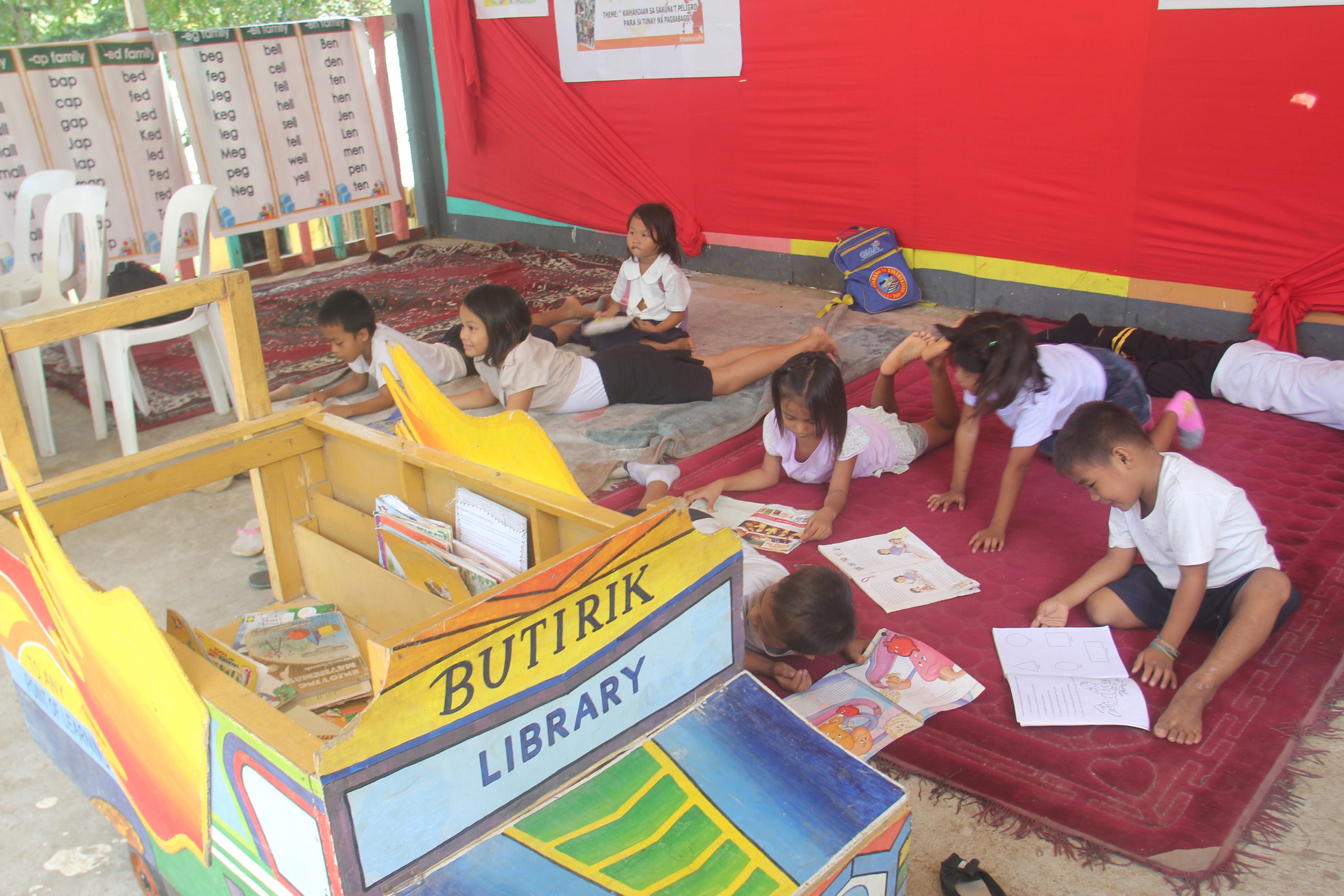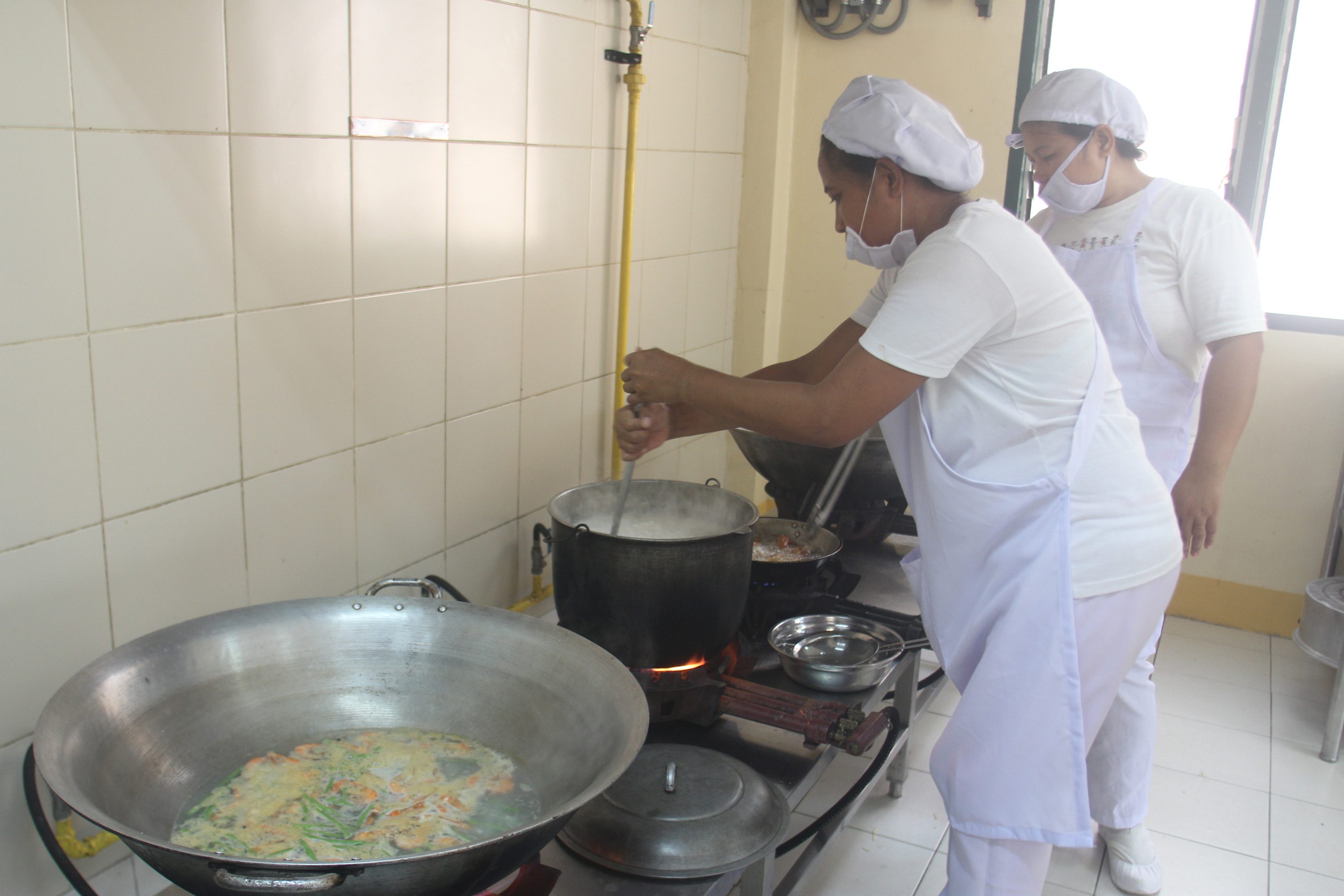SUMMARY
This is AI generated summarization, which may have errors. For context, always refer to the full article.

SORSOGON, Philippines – When Jessica Ascano started working as a school principal at the Calongay Elementary School in 2015, she was faced with a student population hounded by a poor literacy rate and undernutrition.
“When I arrived here, I found out that there was a higher illiteracy rate, many pupils don’t know how to read. The level of comprehension and the national achievement test results are poor which is so depressing as an educator,” she said.
Based on the 2014-2015 Philippine Informal Reading Inventory in Ascano’s school, of the 358 pupils assessed from third to sixth grade, 52 were identified as non-readers, and 166 under frustration level.
Ascano vowed to find a way to change these numbers. In 2015, she instituted Project ARAL (Adopt Reading Acquire Learning) in Calongay Elementary School with 5 reading terminals or kiosks designed to encourage students to read.
Terminal 1, designed as an airplane, served as the reading center for alphabet knowledge; and Terminal 2, designed like a ship, for phonological awareness.

These two terminals are for grades 3 to 6 students.
The 3 other terminals – inspired by a jeepney, a school bus, and a spaceship – were for Story Read Aloud (SRAL) sessions focused on the development of vocabulary, fluency, and comprehension of students under frustration level, Ascano told Rappler.
Following her intervention, pupils started to read books aloud, guided by the teachers. Ascano also tapped parent-volunteers to attend to children whose reading levels were considered instructional and independent.
For now, Ascano hopes to get more books and materials to further hone their students’ reading skills.
“We are seeking new books for our pupils to have additional reading materials to improve further their reading skills and so as to encourage them to read. But our concern is that we lack books and other reading materials,” she said.

Adult literacy, counseling
From 2016 to 2017, Ascano introduced the Adult Basic Literacy Mga Magurang, Magbarasa Kita (Parents, Let’s Read) or ABL-MMK, in partnership with the Pilar municipal government and the Department of Social Welfare and Development’s 4Ps municipal links through group leaders of the conditional cash transfer program.
The short-term course held during summertime helped parents gain confidence by teaching them basic reading and writing skills. This also allowed them to help their children with poor reading and writing skills.
The success of Ascano’s program drew the attention of global nongovernmental organization EDUCO. Calongay Elementary School received P30,000 to finance and continue the project.
Aside from Project ARAL, Ascano also initiated Project LINGAP (Lifting Up Indigent Groups to Address Poverty) to help indigent families in Barangay Calongay, especially families of students who skip school because of financial constraints.
The project does not provide monetary support to the families but during weekend home visitations with the class advisers, parents are given counseling.
Nutrition campaign
Another remarkable project of Ascano is “Isang Dakot Para sa Bata (A handful for the child)” initiative. She tapped the General Parents-Teachers Association (GPTA) and 4Ps and non-4Ps beneficiaries in the community to be part of the program to address the malnutrition problem among pupils here.
In its pilot implementation, she tapped Calongay village farmers group Maralitang Magsasaka Association to donate bananas to the students.
“Some of the banana yields were sold in the canteen and to teachers. The amount generated was used to buy other nutritious fruits,” Ascano said.

Ascano gave her own money and tapped teachers to donate rice to students through the Isang Dakot Para sa Bata project to establish Project FEED (Food Energy Empathy for Pupil’s Development). This aimed to fill n the nutritional needs of wasted and severely wasted pupils form kinder to grade 6 in 2015 to 2016.
The project was augmented by school funds.
“We cooked kakanin delicacies locally called here as ‘linanggang’ and sold these products in the canteen. We called this project as PINAY (Pagkaing Inihanda ni Nanay) being managed by canteen manager Cristina Casimiro who makes delicious and healthy food for pupils,” Ascano said.
“We made sure that healthy foods shall be sold in support to the ‘no junk food policy” in schools of the DepEd. The sale’s percentage of linanggang is the school’s additional fund for Project FEED. This scheme resulted to big drop in the number of wasted and severe wasted pupils,” she said.
Ascano was also behind the Lata Sako Baldend Tanuman (LSBT), a home-based feeding project that encouraged parents and students to plant vegetables for their personal consumption.
Bananas were planted in the school grounds for their food supply. The school, in fact, has a mini-forest planted with mahogany, pili, acacia, and some endemic trees like calumpit, calomagon, lauaan, and santol.
The Calongay village council adopted Ascano’s project through the village-wide “Gulayan sa Bakuran” or backyard vegetable garden contest to address malnutrition and support poor families in the community.
Ascano’s projects did not only improve students’ nutrition, but also provided employment for at least 10 mothers.

One of them was Josie Lañoza, 38, a mother of 3 – all enrolled at Calongay Elementary School. She gets P50 per day as a cook in the school kitchen.
Because of Ascano’s exemplary projects, Calongay Elementary School won as the school in Sorsogon with the best practice in engaging private and public partnerships during the 2018 Division Brigada Eskuwela Appreciation Ceremony.
Ascano was a semi-finalist for the Civil Service Commission’s Dangal ng Bayan award for 2019. The recognition is given to an individual for exemplary ethical behavior. – Rappler.com
Add a comment
How does this make you feel?
There are no comments yet. Add your comment to start the conversation.